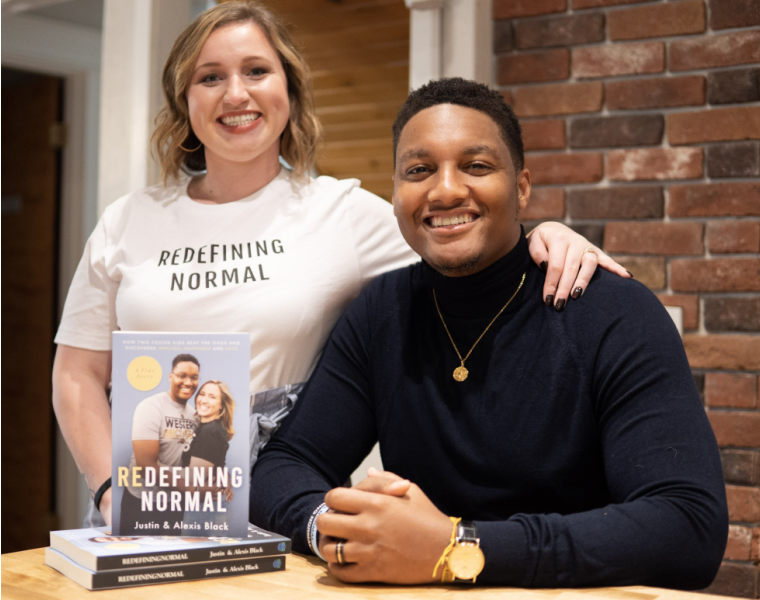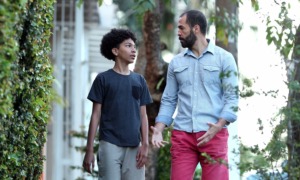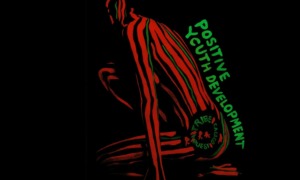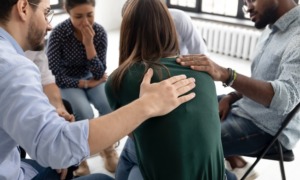
Alexis and Justin Black
Justin Black (right) and his wife Alexis Black have written a book about their lives.
What is your normal? As a 9-year-old, emptiness and depression became my normal moving forward.
We escaped Children’s Protective Services to squat in an abandoned house. My sister was pregnant and my brother was preparing for a child at 14 years old. It gave us hope that my dad promised to restore the abandoned house we lived in. I dreamt of my dad fixing up our house and creating a resurgence within the neighborhood. Unfortunately, the bad influences of the community only worsened my mom’s drug use. My dad continued selling drugs and addicts throughout the neighborhood regularly showed up at our house.
Michigan winter began and the Detroit winds became brutal. Without running water, we had to scoop snow off of the ground, carry it inside in buckets and wait for it to melt to use as makeshift showers. Without a bed, we regularly piled up clothes to sleep on to avoid feeling the wood and sharp nails sticking out of the floor. To this day, the smell of gasoline recalls those gasoline heaters we used to warm our dinner in abandoned housing.
My dad had been making excuses for months of why he couldn’t fix the house and resorted to hiding from CPS. I began to lose faith in my parents. We did our best, but my parents had no choice but to let us go.
One month later, I entered foster care as the youngest of five siblings. The feeling of having my parents let me down was the beginning of my mental health issues. Filled with anxiety I thought, “If I couldn’t trust my parents, who would I be able to trust?” I entered the system buried in emptiness. I was alone and afraid.
Shock and paralysis
Though I had experienced homelessness, neglect and living in abandoned housing in my childhood, five years later my sense of loneliness would take a turn for the worse. March 15, 2011 would haunt me for many years to come.
I was in the seventh grade when I was walking home from school and brutally attacked by three high school students, having a brick slammed into my teeth.
I ran into a random McDonald’s, asking anyone who would listen to call the ambulance. People stared, covering their mouths in shock. I tried to remain calm. Gasping, I dragged myself to the counter. All eyes were on me, but no one was offering to help. People seemed paralyzed by shock, which only made me more frightened of what had happened to me.
I vaguely noticed that blood was pouring out of my mouth and that this made it hard to speak. Finally, the cashier came from behind the counter and handed me a warm wet rag. Once I looked down to grab it, I noticed the blood all over my coat, my hands and even the cashier.
In the ambulance, it was confirmed that I had lost six teeth, four of them partially gone and the front two completely knocked out. Later on, I found out that a part of the bone structure underneath my nose was damaged and partially gone as well.
Every day after school I was forced to walk to the bus stop, next to the McDonald’s where I lost my teeth. Every day after school I saw my blood sitting in the McDonald’s parking lot on my way to the bus stop. As I waited for the bus, I relived the incident, every single day. Walking past the spot where I lost my teeth, I noticed pieces of broken teeth in the parking lot that were probably mine. Walking home from school was never the same.
How to disrupt brokenness in Black communities
Weeks later the McDonald’s cashier who comforted me during the incident came out to the bus stop to check on me. She asked how I was doing and how I was handling things. Sometimes the small things mean so much. She couldn’t have had any idea what I was going through. The amount I was dealing with. She didn’t know that I felt alone and was deeply depressed. In only a few minutes, she made my day and made me feel loved. Something I had been unfamiliar with for most of my life.
Many Black communities have been deprived of information on positive ways to maintain or improve mental health. Society has put a dollar value on mental health and if you can’t afford a counselor, then you’re out of luck. Of course, mental health support and the stability it offers help pull impoverished communities away from the brink of destruction. Many impoverished Black communities have little if any access to information about mental health.
Anxiety and depression are swept under the rug in Black communities, usually going unnamed and unaddressed. Because I grew up in a household that lacked any knowledge of how to resolve conflict healthily, I almost became a product of this system. It wasn’t until I took advantage of the resource of counseling that I learned how generational cycles could be reversed and how to disrupt the path of brokenness set for Black communities.
Justin Black and Alexis Black are the authors of “Redefining Normal: How Two Foster Kids Beat The Odds and Discovered Healing, Happiness and Love.” Together they’ve created The Scholarship Expert and The ROSE Empowerment Group to support hundreds of young people.































